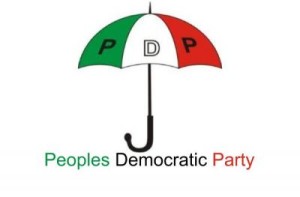
PRESIDENT OBAMA SET TO MAKE HISTORIC VISIT TO CUBA NEXT MONTH

(Photo by Pete Souza)
Multiple U.S. and diplomatic sources confirmed on Wednesday that President Barack Obama will visit Cuba next month.
The White House is expected to announce the trip Thursday. One U.S. source described the anticipated visit as short.
“We can confirm that (Thursday) the administration will announce the President’s travel to Latin America, including Cuba, in the coming weeks,” according to a senior administration official.
The trip, long expected, comes after Obama’s administration formally reopened ties with Havana in late 2014, following a half-century of enmity.
The visit was first reported by ABC News.
Speaking at CNN’s GOP town hall on Wednesday night, presidential candidate Marco Rubio slammed the announcement.
The Florida senator said that if he were president, he would not visit the island nation — unless it were a “free Cuba.”
The Cuban government is “an anti-American communist dictatorship,” said the Cuban-American senator, who has been an outspoken critic of Obama’s Cuba policy. “They’re a repressive regime.”
Texas Sen. Ted Cruz, whose father emigrated from Cuba, also disparaged the prospect of a presidential visit.
“I think it’s a real mistake. I think the President ought to be pushing for a free Cuba,” Cruz said at the same town hall. “My family has seen firsthand the evil and the oppression in Cuba. We need a president who stands up to our enemies.”
The American embassy was reopened and a U.S. flag raised at the compound on Havana harbor in August.
Since then, high level U.S. officials have traveled to the island, including Secretary of State John Kerry and transportation chief Anthony Foxx.
Travel restrictions have been loosened and economic channels revived. Obama shook Cuban leader Raul Castro’s hand during an historic face-to-face meeting last spring.
That meeting, which transpired during a summit in Panama, was regarded as a breakthrough. But images of the American President stepping onto Cuban soil will provide Obama a lasting illustration of his adage that diplomacy with traditional U.S. foes can yield concrete results.
Last week, U.S. air carriers entered a bidding war to secure routes to Cuba after both nations signed an agreement to resume flights between the island and the United States.
U.S. travelers, who previously were required to adhere to strict conditions for visits to Cuba, are now able to apply for a broad range of travel licenses, included trips for cultural exchanges and humanitarian work.
But travel purely for tourism won’t be allowed until the U.S. Congress lifts a longstanding embargo, which also restricts most trade with Cuba.
Many lawmakers stand opposed to such a move, arguing the regime in place in Cuba restricts dissent and tramples on citizens freedom of expression.
Leading up to the announcement of Obama’s trip, White House officials said Cuba would need to demonstrate human rights reforms before the President would travel there.
Officials say Obama could visit the island to witness a signing of a peace accord between the government of Colombia and the FARC rebel group. Obama committed $400 million to the Colombian government in his most recent budget proposal to implement the deal.

